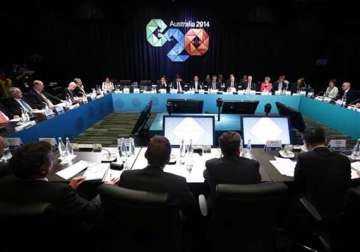Brisbane: Leaders of the 20 most powerful industrialized and developing economies are due to endorse strategies for raising global growth as they meet in Brisbane, Australia this weekend. Since they represent about two-thirds of the world's population, 85 percent of global GDP and over 75 percent of global trade, they have the heft to do so. But reaching consensus can be tricky and leaders will also be fine tuning their own myriad, complex relationships during the meeting. Here are some key relationships to keep an eye on:
U.S.-CHINA
President Barack Obama and his Chinese counterpart Xi Jinping announced a landmark climate change agreement earlier this week in Beijing on limiting carbon emissions by the world's two largest economies. The breakthrough came after an intense two days of talks on the sidelines of the APEC summit. But that agreement and others on military cooperation and trade did not dispel the evident tensions over human rights and other issues. The U.S. is wary over China's deepening ties with Russia while Beijing is skeptical about America's moves to “pivot” strategically and economically toward Asia.
Latest World News
